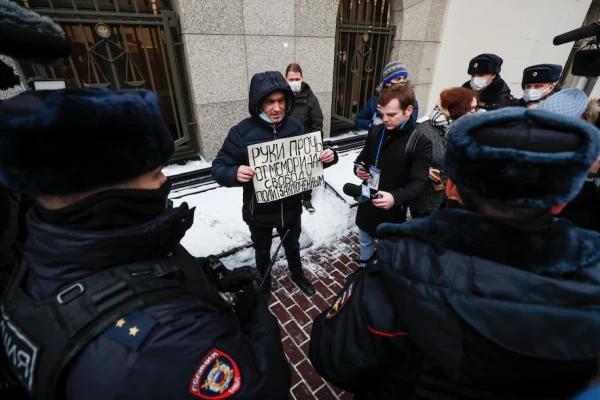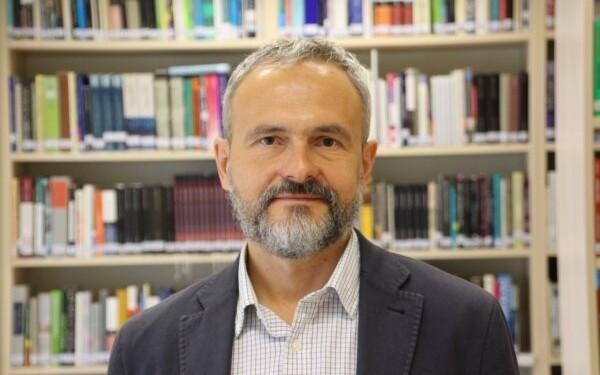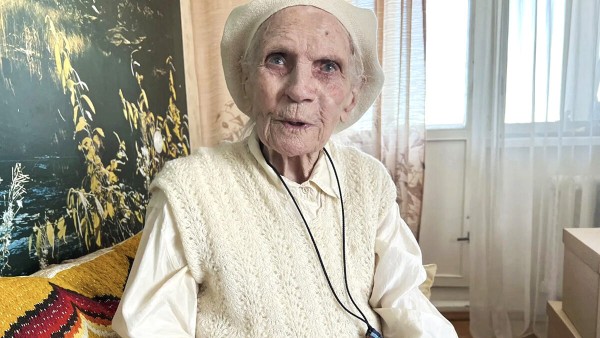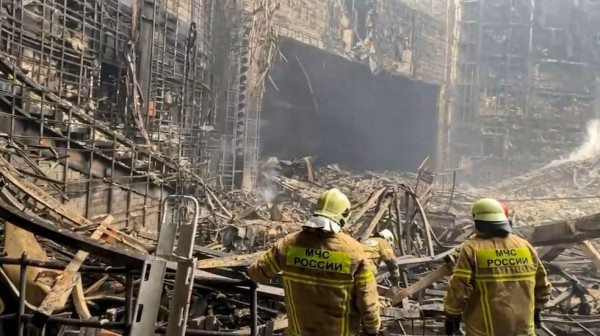MOSCOW — Vladimir Putin is big on symbols. He began his rule by installing a memorial plaque to a Soviet KGB chief and reinstating the Stalin-era national anthem. More recently, he used the anniversary of the assassination of political rival Boris Nemtsov to award a medal to a Chechen official reportedly involved in organizing it. And he used the birthday of another opponent, Alexei Navalny, to sign a law banning his movement as “extremist.”
Last week, the Russian Supreme Court held its first substantive hearing on a request by Putin’s prosecutor general to close down Memorial, the country’s leading human rights group, which was founded by Soviet dissident and Nobel Peace laureate Andrei Sakharov. The date chosen for the hearing? Dec. 14, the anniversary of Sakharov’s death in 1989. The Kremlin could not have chosen a more fitting symbol for its actions — a point not lost on the hundreds of people who gathered outside the court building here to express solidarity with the beleaguered group.
For all the importance of human rights work in authoritarian societies, Memorial is more than just another civil society organization — it is the keeper of the nation’s collective memory. Unlike in other post-communist countries, where atrocities committed by former regimes are being documented by government institutions — such as the Stasi Records Archive in Germany or the Institute of National Remembrance in Poland — in Russia this mammoth task was left to volunteers. Memorial’s activists have spent many years conducting research in state archives. That was hard enough in the 1990s, under a friendly government (then-President Boris Yeltsin was himself a member of Memorial). But it’s become ever more challenging under Putin.
Through its work, Memorial has managed to create a national database with the names of some 4 million victims of Soviet state terror. Admittedly, that is a mere fraction of an estimated 12 million subjected to various forms of state-sponsored repression in the U.S.S.R. But thanks to Memorial, millions of Russians have learned the fates of their perished relatives — and the organization’s work continues.
Not surprisingly, Putin’s government has a different perspective. For the people who pride themselves on their past service in the KGB — the very organization that carried out this state terror — historical truth comes as a personal affront. No less irritating to the Kremlin is Memorial’s work of chronicling political repression in today’s Russia by maintaining the list of current political prisoners — which now stands at 431, twice as many as in the late Soviet period — that informs the work of international human rights institutions in this field.
So Memorial has been officially branded by the Kremlin as a “foreign agent” and vilified on state television. The group’s regional leaders — such as Oyub Titievin Chechnya and Yuri Dmitriev in Karelia — have been imprisoned on trumped-up charges. State officials have accused the organization of “presenting a public threat.”
The government’s move to shut Memorial down — on the charge of violating the “foreign agents” law — came as the logical final step. In a regime where courts only serve to formalize political decisions, the real verdict came before the hearings even started, when Kremlin press secretary Dmitry Peskov conveyed Putin’s message that Memorial has “problems with abiding by Russian law.” In a distinctly Orwellian tone, prosecutors are arguing that Russia’s leading human rights organization must be shut down “to protect the rights of other people.”
The only court that can defend Memorial is the court of public opinion — both domestic and international. Abroad, the U.S. Congress, the European Parliament, the Council of Europe, as well as senior Western officials have demanded that the Kremlin withdraw its lawsuits and stop efforts “to harass, stigmatize, and silence civil society.” European and U.S. lawmakers have urged sanctions on Kremlin officials involved in the persecution of Memorial. At home, a petition in support of Memorial has been signed by tens of thousands of Russians. Lyudmila Petrushevskaya, one of Russia’s most famous living writers, renounced a state award she had received from Putin. Several dozen members of the Russian Academy of Sciences signed an open letter protesting the closure of Memorial and accusing the government of “an attempt to deprive the nation of its memory.”
In the end, this attempt will surely fail. The Kremlin can shut down formal structures and withdraw licenses — but it cannot erase memory. That memory lives on in the millions of Russian families whose loved ones fell victim to Soviet policies of state terror.
Perhaps the most vivid manifestation is “Returning the Names,” an annual remembrance ceremony held outside the KGB headquarters in Moscow and in cities all over the country: Thousands of people line up all day long to read names from Memorial’s database — an event that may be even more irritating to the authorities than opposition rallies. This public memory will no doubt endure until a better time in Russia — a time when our government will condemn Soviet crimes instead of glorifying them.
https://www.washingtonpost.com...
The Kremlin is trying to erase Russia’s collective memory. It won’t succeed. (1)
Eestlased Venemaal | 23 Dec 2021 | Vladimir Kara-MurzaEWR
Viimased kommentaarid
Kommentaarid on kirjutatud EWR lugejate poolt. Nende sisu ei pruugi ühtida EWR toimetuse seisukohtadega.
Eestlased Venemaal
TRENDING

























